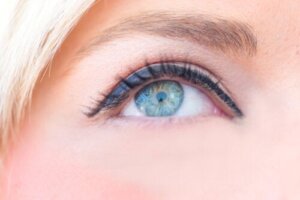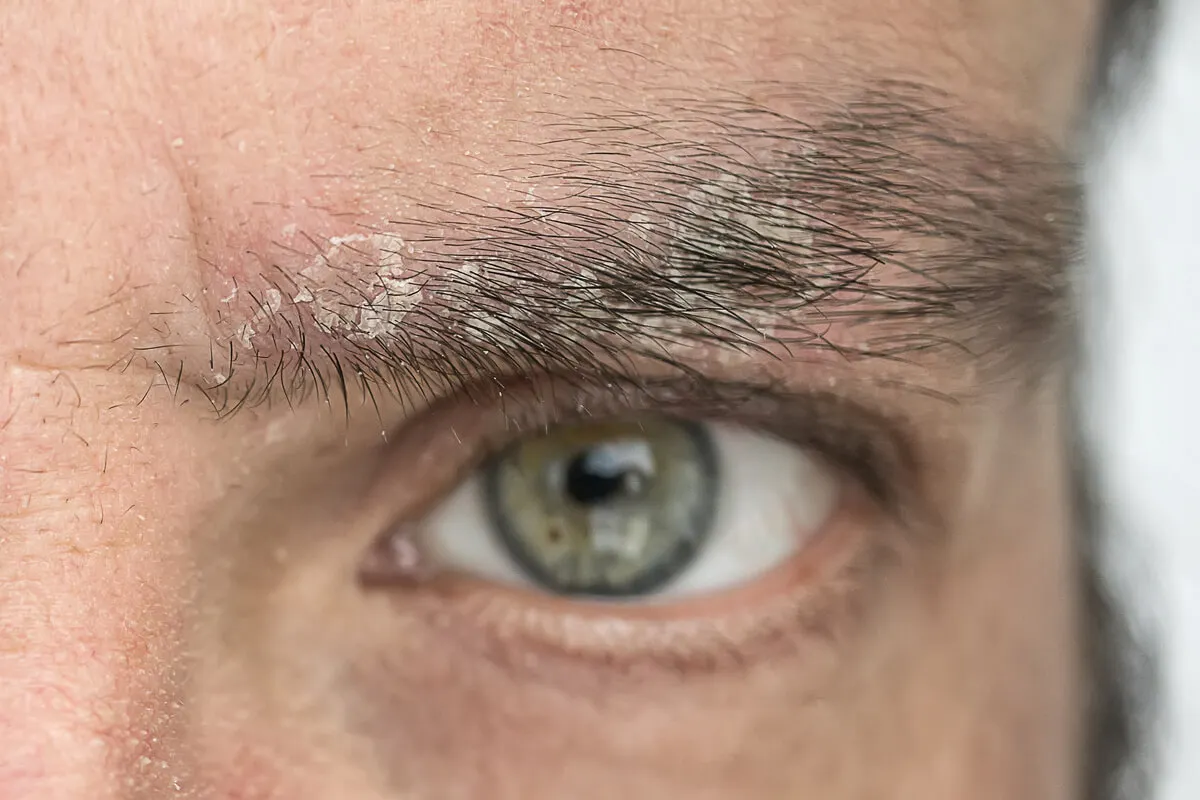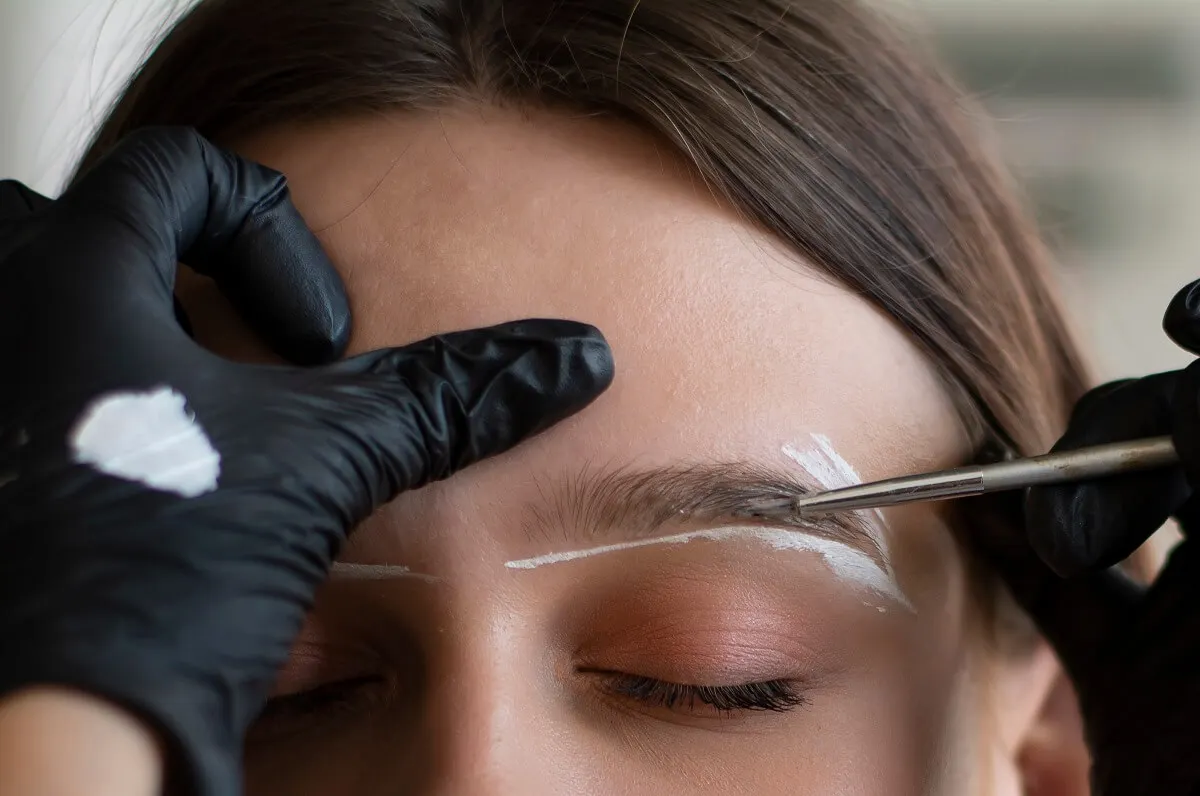Eyebrow Grafting: What Is It and What Are The Advantages?


Reviewed and approved by the nurse Leidy Mora Molina
An eyebrow graft is presented as a definitive solution for those seeking lasting and natural results, different from those you get with pigmentation. This way of repopulating the arch on the upper eyelid promises greater density and better aesthetics because it involves implanting hair follicles to regain the appearance of a healthy eyebrow.
Cosmetic treatments, such as microblading, micro pigmentation, and shading, offer good effects. But in complicated cases associated with eyebrow baldness, it’s advisable to try an alternative such as grafting.
What is eyebrow grafting?
Grafting is a permanent technique to recover the aesthetics of the eyebrows. The application is done hair by hair and lasts approximately three hours. During this time, the certified specialist in hair surgery gives the shape and tone to the arches.
The strands are selected from the nape of the neck as a donor area because the region does not carry the gene of alopecia. They can also be obtained from the armpits, the pubis, or the retroauricular region.
The Spanish Academy of Dermatology and Venereology points out that each hair respects the same thickness and the design obeys the alignment that the eyebrows have by nature. The method covers the lack of density, sometimes produced by factors such as the following:
- Scars
- Anxiety or stress
- Excessive hair removal
- Pigmentation correction
- After-effects of medical treatments
Another common cause of this baldness is known as superciliary madarosis, explains the Medical Surgical Research Center. It has to do with allergies, injuries, and autoimmune diseases.

We think you may be interested in reading this, too: Thin Eyebrows: How to Deal With Them in a Natural Way
How is eyebrow grafting done?
Implanting eyebrows is similar to hair grafting. In a previous consultation, the doctor analyzes and determines the angle of implantation, as well as the amount of hair per follicular unit, which usually ranges from 1 to 2. it’s different with each patient because not everyone has the same eyebrow shape and much less the same thickness.
The strands in question are shaved from the donor area. The intervention begins with the selection of the follicular units and the planning of the distribution so that the lines look symmetrical.
Patients receive local anesthesia, so the procedure is painless. In addition, no hospitalization is required for rest, since this is an outpatient surgery.
Once at home and following medical instructions, both the donor and recipient areas are washed and moisturized to avoid infections. The definitive results are appreciated 6 months after the graft.
The advantages of eyebrow implants
Apart from offering bushy eyebrows and no white in between, the graft contributes to a harmonious facial expression. It also helps keep the eyes protected from sweat or rain, understanding that the eyebrows channel unwanted liquids so that you have better vision.
A natural look
You will have real hair, which provides a natural appearance. If you want to apply makeup after the implant, you can do this, but with the precaution of waiting 2 months after the intervention and applying natural products.
Correction
Alopecia or baldness in the eyebrows usually deforms the appearance of these. To correct the problem with a graft, the doctor performs an approach that includes the coverage of the depopulated areas, with the purpose of returning the eyebrows to their normal appearance.
Simple maintenance
The implant does not require constant touch-ups, but simple care, such as trimming the grafted hair from time to time. If you pluck your eyebrows, do it with the proper technique to avoid irreversible accidents.
After the operation, the first hairs may sprout in disarray. You can help them to take their direction by smearing some cosmetic oil on them.
Like this article? You may also like to read: Natural Remedies for Hair Loss: Eyebrows and Eyelashes
Increased density
Some people simply have very scarce eyebrows, while others are naturally quite thick. There are also those who are completely bald in the area. Resorting to grafting is to guarantee a permanent increase in hair density.
It’s true that other less invasive techniques help to achieve thick eyebrows. The difference is that these options are temporary and you will have to spend money again to reshape the appearance of the arches.

Are there any risks with eyebrow grafting?
Not everyone qualifies for eyebrow implants. It’s important that a specialist evaluates the case and specifies the reasons.
When the reason for the loss of natural eyebrows is an illness, it’s imperative to have a medical endorsement about the controlled condition or in ideal conditions to proceed with the graft.
Other inconveniences are not complying with the indicated rest time or exposing oneself to the sun too soon. Likewise, neglecting remedies against inflammation and infections can have consequences, such as scabbing or swelling.
All cited sources were thoroughly reviewed by our team to ensure their quality, reliability, currency, and validity. The bibliography of this article was considered reliable and of academic or scientific accuracy.
- Hernández Parera JC. Madarosis, milfosis y tilosis. ¿Significan lo mismo? Centro de Investigación Médico Quirúrgica. Cuba; 2010. https://instituciones.sld.cu/cimeq/2010/09/06/madarosis-milfosis-y-tilosis-significan-lo-mismo/
- Sánchez V. Todo sobre tus cejas. Academia Española de Dermatología y Venereología. España; 2014. https://aedv.es/comunicacion/notas-de-prensa/todo-sobre-tus-cejas/
This text is provided for informational purposes only and does not replace consultation with a professional. If in doubt, consult your specialist.








